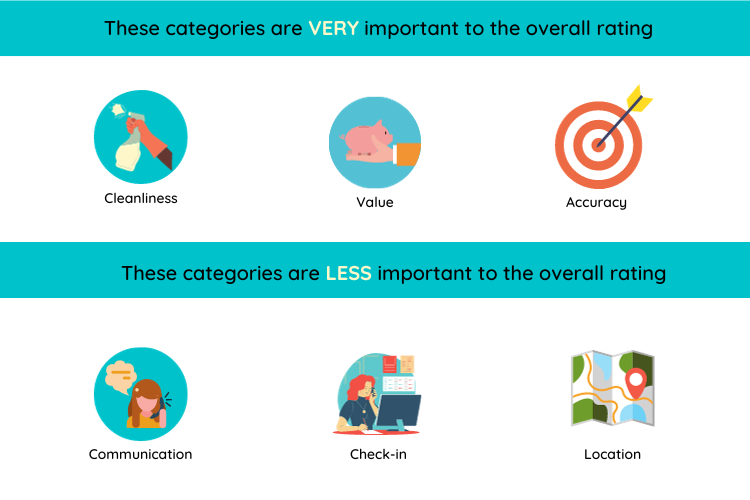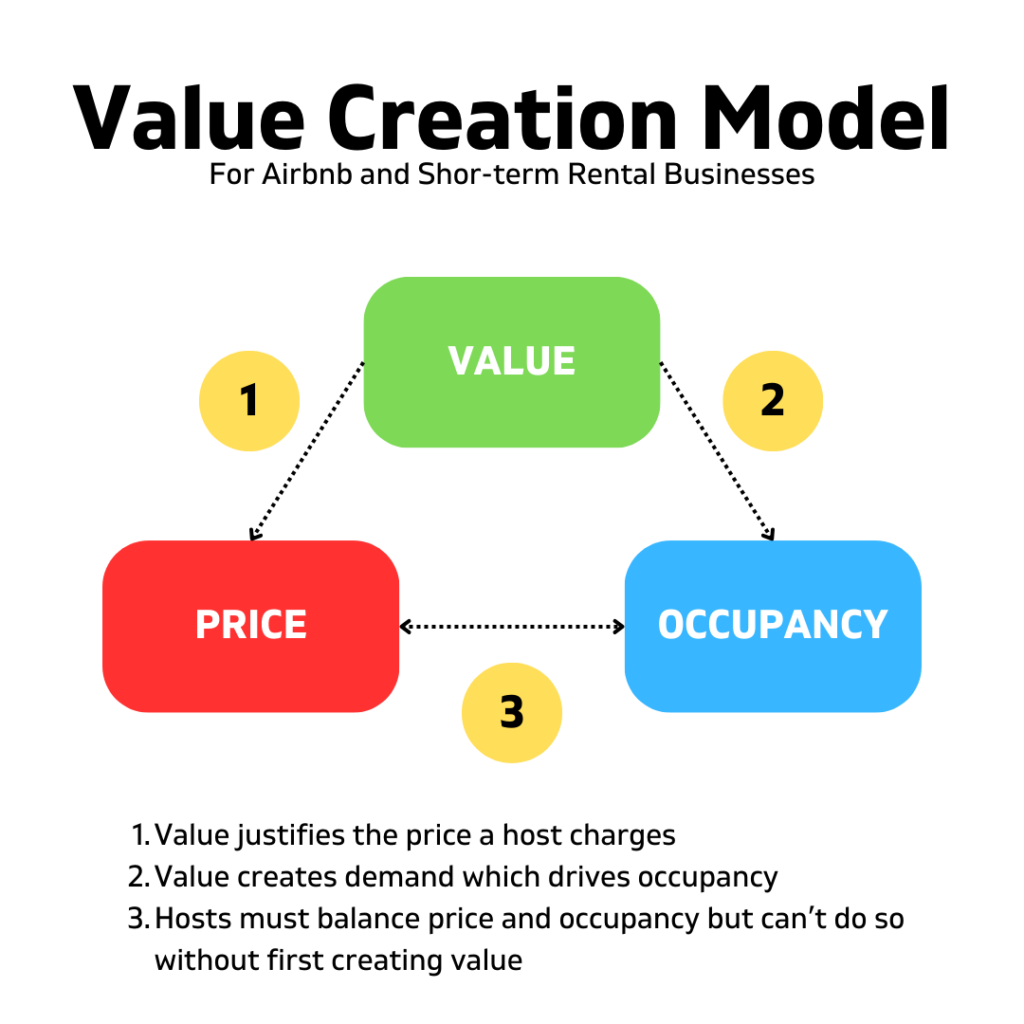Introduction
In this article I will bring together insights from other analyses I’ve performed on Airbnb data to demonstrate why creating value is key to running a successful short-term rental business. In doing so, I’ll show why Airbnb hosts should focus on their listing’s value rating above all other ratings (even the overall rating) in running their business.
Recap of previous analyses
We’ll start by recapping some insights from previous analyses. First, there is the relationship we identified between the value rating and the overall rating. We identified the strong relationship between how a guest rates the individual categories and how they rate their stay overall. We found that value had one of the strongest influences on the overall rating.

Next was the relationship between price and the overall rating. Using a machine learning model to predict price as a function of other features, we saw that listings with high overall ratings were charging higher prices. Given how much value influences the overall rating, we can say that the value rating indirectly influences how much hosts can charge for their listing.
Finally, using yet another machine learning model we uncovered that the value rating directly predicted the number of bookings a listing received.
Assumptions about value
To combine all these insights, we will need to make an important assumption: the value rating represents the value the guest perceived in the listing. This may seem simple but hosts often have a hard time trusting the value rating. They see it as a bit of a black box saying things like “Airbnb really needs to help guests understand what is meant by value”.

The truth is, we can define value. For Airbnb guests it is simply “did the listing live up to the guest’s expectations”. We can even prove this out by looking at the relationship between the other individual rating categories and the value rating.
In doing so, we see that the accuracy rating has by far the strongest relationship with the value score. When a guest rates accuracy highly, they are more likely to rate value highly as well. The next strongest relationship is with the cleanliness rating. Cleanliness being a universal expectation of any short-term rental guest.
We can also identify what drives guests to give high and low value ratings. Things like extra guest fees and high cleaning fees make it more likely a guest will give a lower value rating. On the other hand, providing little extras in terms of amenities makes it more likely a guest will leave a higher value rating.
Bringing it all together: the Value Creation Model
Once we can accept that the value rating is a true measure of guests’ perceived value in a listing, it can be used to measure value created. Think about it like this: most other businesses would kill for the quantitative data Airbnb makes fully available to hosts. They give hosts immediate, quantifiable feedback on the perceived value from every guest that stays at their listing.
With that feedback, hosts can determine if they are creating value for guests and improve if they are not.
To bring back the other insights I recapped at the beginning of this article, the reason why measuring value created is so important is because it has a direct influence on price and occupancy (i.e., number of bookings). We can show the relationship between these three things in the diagram below.

Value creation is important because it justifies the price a host charges. It also helps to create demand for the listing, which in turn drives occupancy (bookings).
The final piece of the puzzle is the balancing act between price and occupancy. It is up to each host to decide what level of occupancy they want and what price they are willing to accept. However, without first creating value they won’t have full flexibility to play with these levers.
Key Takeaways
- Use the value score to understand if you are creating value for guests.
- Take steps to create more value in your listing if you are not consistently scoring five stars in the category
- Value creation is essential to optimizing pricing and bookings

